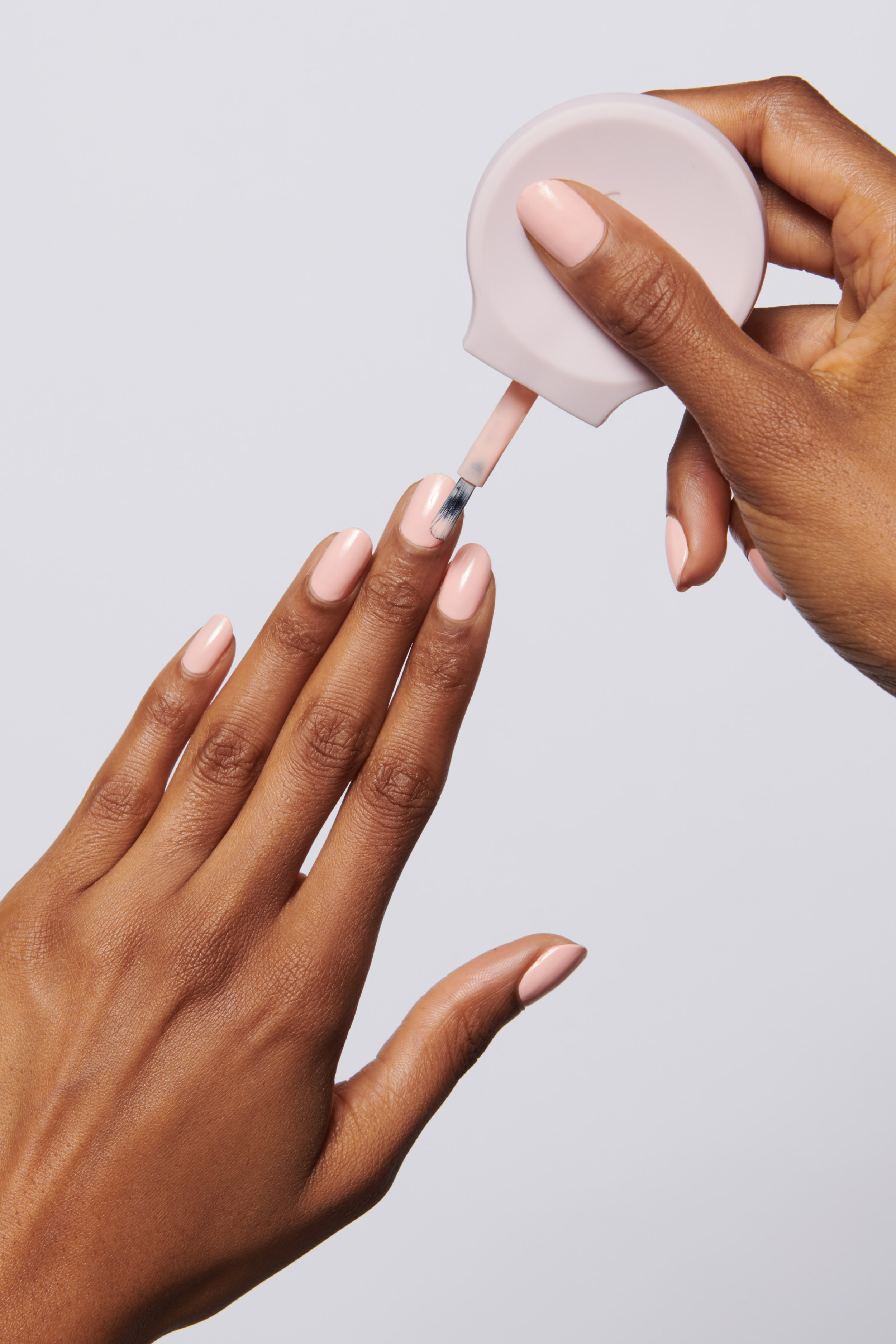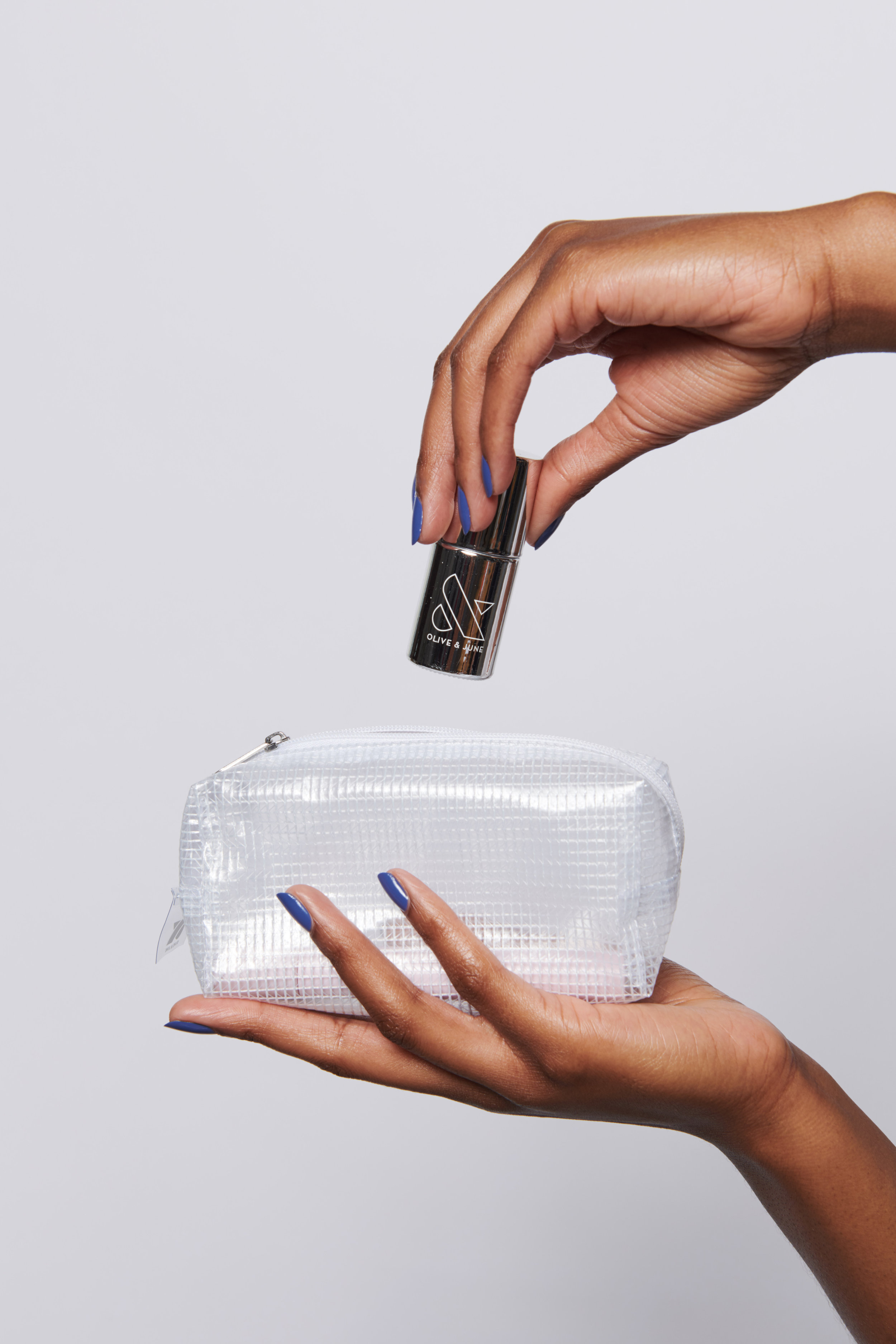You asked for more content around business finances, so we’re delivering. Welcome to Money Matters where we give you an inside look at the pocketbooks of CEOs and entrepreneurs. In this series, you’ll learn what successful women in business spend on offices spaces and employee salaries, how they knew it was time to hire someone to manage their finances, and their best advice for talking about money.
Courtesy of Olive & June
Starting a business is no easy task. Thinking of the idea is the easy part, building it from scratch however takes tenacity, grit, and persistence to withstand the rollercoaster ride of entrepreneurship. But from what we hear from the multitude of panels we’ve witnessed at C&C, it’s definitely worth every drop of blood, sweat, and tears along the way. Just ask Sarah Gibson Tuttle founder and CEO of Olive & June.
After 10 years as an equity sales trader at JPMorgan and Morgan Stanley, Tuttle noticed a white space for affordable luxury nail salons and without a business plan or any experience in the industry, she launched her own company. Needless to say, it has been a whirlwind with many mistakes made along the way, but Tuttle has turned them into lessons and in doing so, carved a new niche for herself. She has single handedly filled that white space with her Instagram-famous nail salons and a newly launched product line of at-home nail kits, polishes, and sticker available at Target.
Read on to hear how Tuttle knew the brand was ready to scale and introduce product, how she opted for angel investors over raising from institutional funds, and why entrepreneurs should “be scrappier than is comfortable.”
How did you know the brand was ready to scale and introduce a product line?
I truly love the in-person consumer experience so much that I focused entirely on that first. I wanted people to have access to beautiful nails and an amazing experience that made them feel happy and to deliver that we built our salons. Over time, I thought about how to bring the joy I saw in the salons to more women across the country. I realized that to bring that Olive & June happiness to everyone, we were going to need to create a system that people could do at home. It was an obvious extension of the brand and we saw an opportunity to make a difference in a largely ignored space where people needed and deserved new and better options.
How did you fund the new product line? What was that experience like?
We raised a seed round to fund this next phase of innovation for Olive & June. Raising money is like having a second, third and fourth job especially when you're as focused as we were on having angel investors versus raising from institutional funds initially. We wanted to connect with individuals that we felt could bring expertise and value to our brand. Going the angel route took way more time but for us but it was so worth it because we have a cap table full of investors excited to help us grow this business.
What has the response been like? Did you feel the pressure when it launched to sell through? Why/Why not?
The response has been incredible. We are over 2x our projections and have sold out of polish twice. To inspire a movement of women doing their nails at home and actually enjoy it (and feel good about the results) is such a privilege. I love hearing from women who say they never thought they could do it themselves and that the Studio Box made it simple for them or that doing their nails on Sunday nights is now their new self-care beauty routine they look forward to. Plus, we were able to bring differentiated products to the market and they are resonating. To consistently hear how long the polish is lasting and have manicures lasting 10, 12, even 14 days is literally awesome. To have created a 7 free formula that truly lasts is a dream come true.
“Raising money is like having a second, third and fourth job.”
What other products are in the works and will they be available at Target?
We have a product pipeline of over 50 products for the next few years. While we cannot share our upcoming innovation yet, we are so excited to continue to disrupt nails. For us, it’s all about beautiful nails for everyone and making at-home nails easier, better and more fun than ever before. This north star will continue to guide us and there is so much we have planned to make this mission come to life. We will also have extensions of our current offerings and collaborations too. We have no lack of ideas over here, we're pretty nail obsessed. Target was an awesome summer collaboration. We will let you know when we have more news to share on retail partners in the future.
What are some valuable mistakes/lessons you've learned from the experience of creating a product?
The biggest focus should always be making sure the product solves a problem or need. Next up is making sure the product actually is good and works—the packaging is the sprinkles, not the cake or the icing. And finally, but equally important: what are the costs to make this product and can you still afford the soft costs on top of those hard costs.
Where do you think is the most important area for a business owner to focus their financial energy?
Efficiency is huge. We are focused on creating a sustainable business so we can continue to scale and grow and serve more consumers. For us, that means being smart on the cost of goods, being thoughtful about who we partner with and being disciplined internally to focus on efforts that drive results and impact the consumer most effectively.
What was your first big expense as a business owner?
Since I started as a salon owner, my answer to this will be different than a traditional CEO of a CPG (consumer packaged goods) company. The salons were extremely expensive to build—we use a lot of custom furniture and don't skimp on anything important that makes the Olive & June brand—but they are the hub of our IRL experience. I've learned in the process that some things matter more than others and have been able to assess where we can cut back but where it still totally makes sense to spend.
How did you decide what to pay yourself?
It's always been my belief that in the beginning, the founder should take as little a salary as they are able to. As you scale the business, I still adopt that philosophy mostly because the more cash you have, the bigger (and thus more effective) your team can be. For me, it has always been about surrounding myself with a team that is way smarter and more talented to continue to build Olive & June.
How did you decide what to pay employees?
Every position is different, but I always suggest talking to other founders and people in relevant businesses for factual industry checks on compensation. Compensation can get pretty emotional (in either direction) and it doesn't have to be. I also firmly believe that there are many factors that go into compensation and it's important to find out what matters to each person on your team. For one person it could be a work from home day every month, no questions asked while another would prefer more financial compensation. Everyone is different and a good manager learns what makes people happy.
“It’s always been my belief that in the beginning, the founder should take as little a salary as they are able to. ”
What are your top three largest expenses every month?
Team, creative, and facilities.
How much do you spend on office space?
As little as possible. We're scrappy.
What apps or software are you using for finances? How did you decide when to hire a financial advisor (if you have one)?
We work with an outside accounting firm and have since about six months in. We should have worked with them since before day one. Never skimp on accounting.
Do you wish you’d done anything differently in your financial journey as a business owner?
I always wish we spent less—I'm the one who has to fundraise ultimately—but all missteps are lessons. I am proud to say we have learned and grown a ton in the past six years.
“Be scrappier than is comfortable. ”
Why should women talk about money?
Hopefully, we get to a place where talking about money is factual. The emotional component creates anxiety which I have struggled with in the past. I really look up to women I work with at Olive & June—our CFO and GM specifically—who effortlessly have nonemotional financial conversations. It's both refreshing and inspiring.
Do you have a financial mentor?
I have a few, but my most recent is one of our investors, Vanessa Wittman, the former CFO of DropBox, Oath and now the CFO of Glossier. Vanessa is one of the most straightforward and direct people, while still having a real enthusiasm for life. Her passion for business is contagious while also totally grounded and warranted. She's my new numbers girl crush.
What is your best piece of financial/money advice for new entrepreneurs?
Rethink outsourcing key jobs to vendors that you can do yourself at the beginning. Be scrappier than is comfortable. It's easy to spend money, it's harder to think through cheaper solutions but you'll save money, equity and you'll be smarter than you were before.
Who do you want to hear money advice from next? Share it with us in the comments below.




